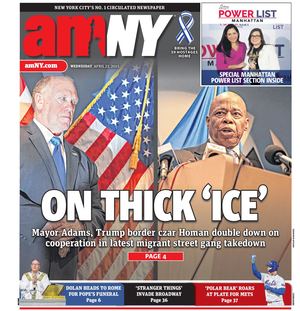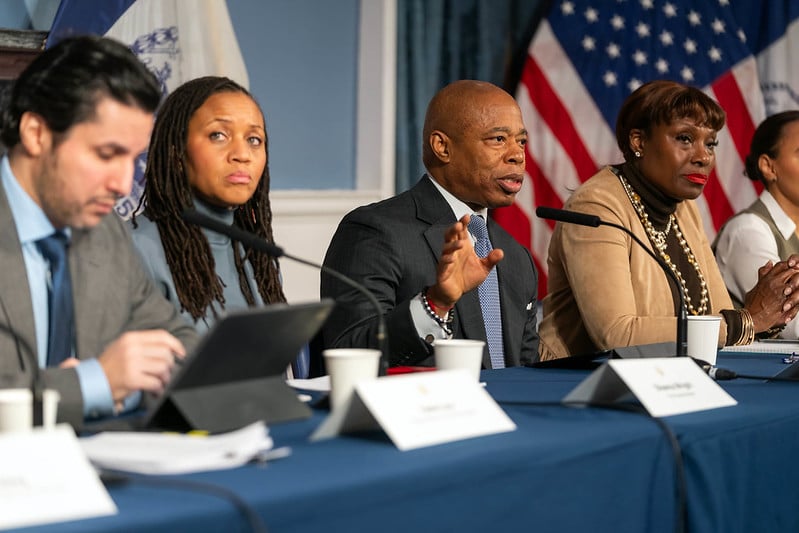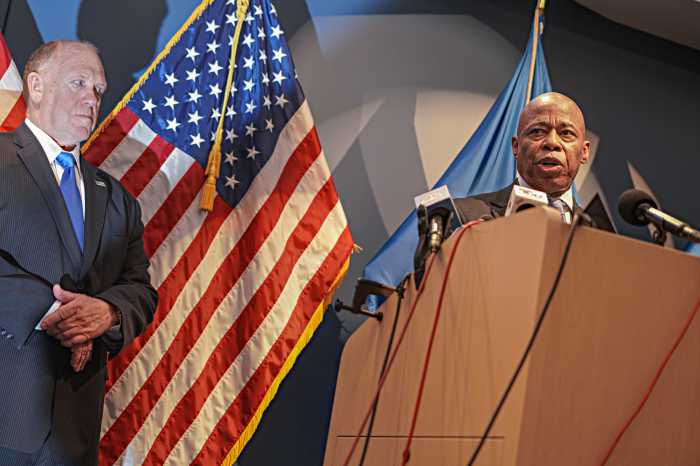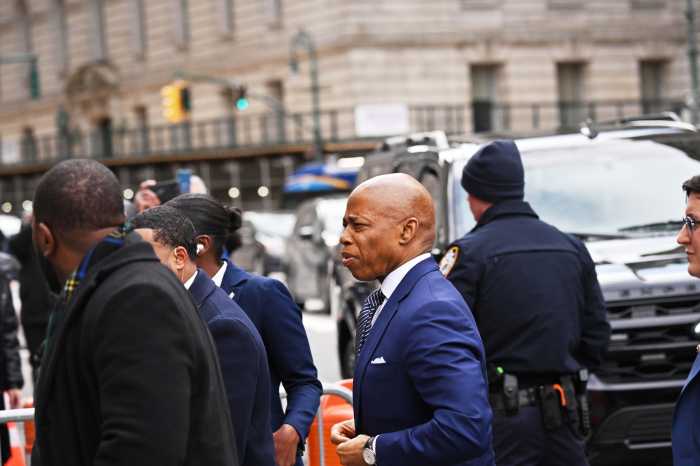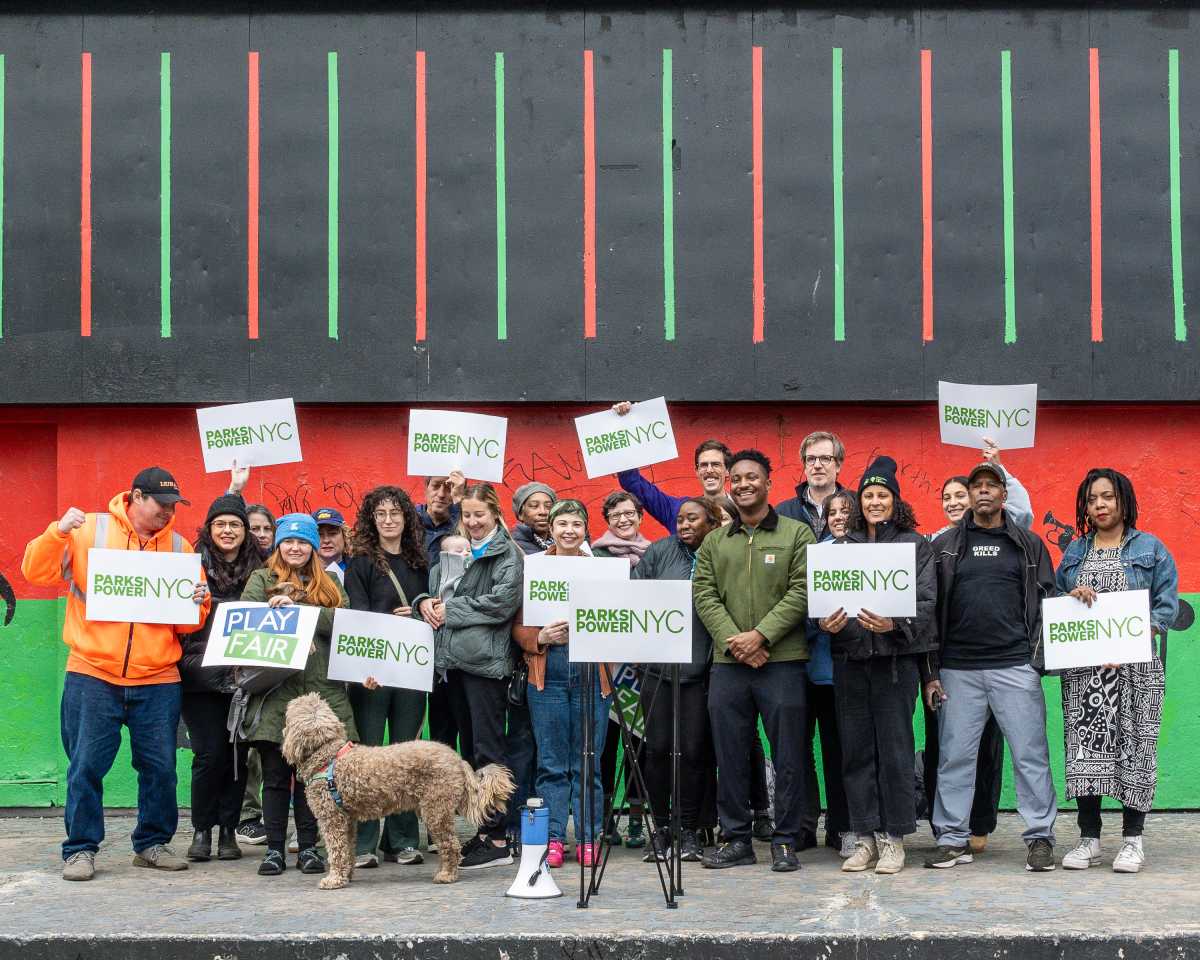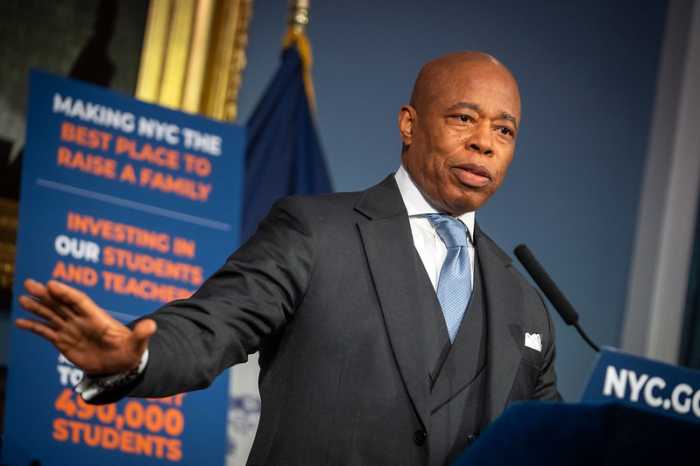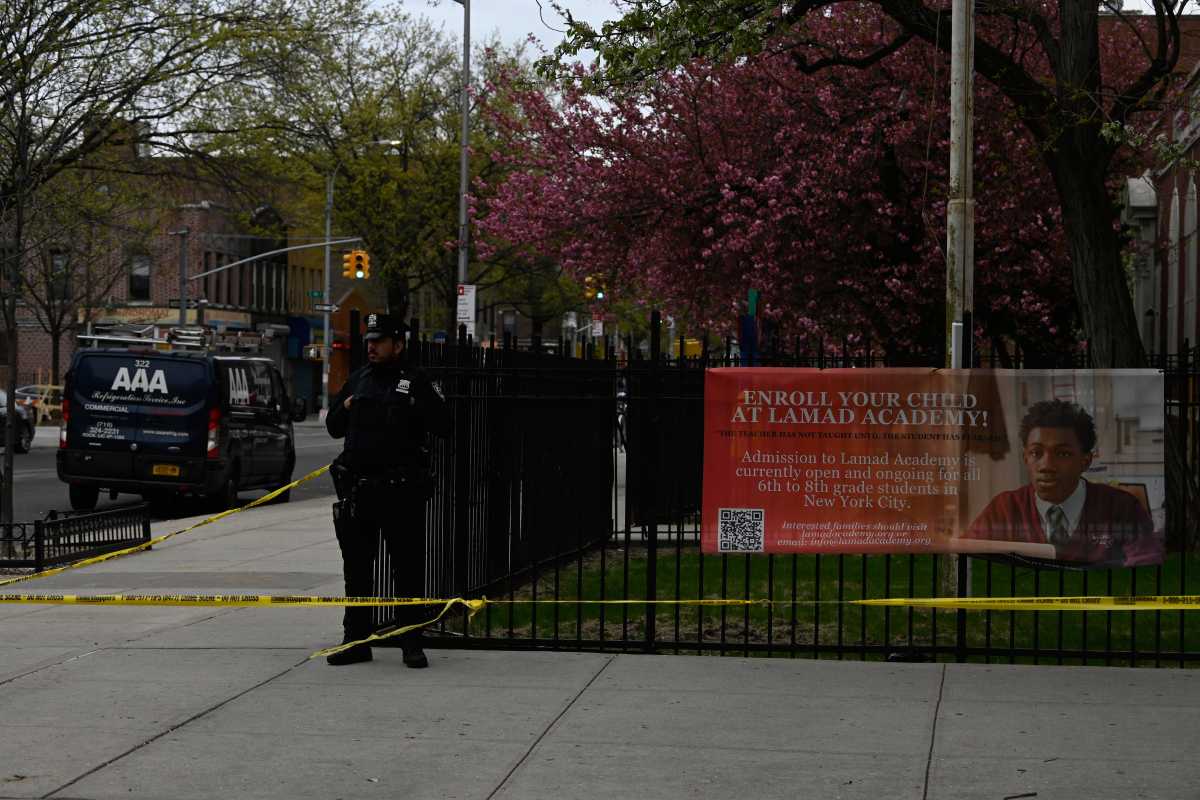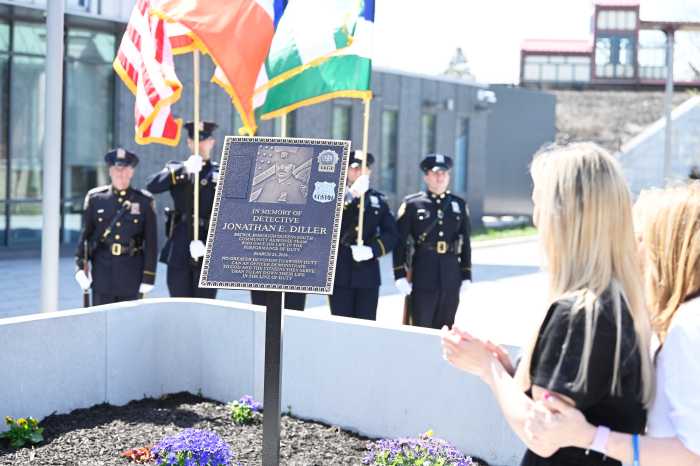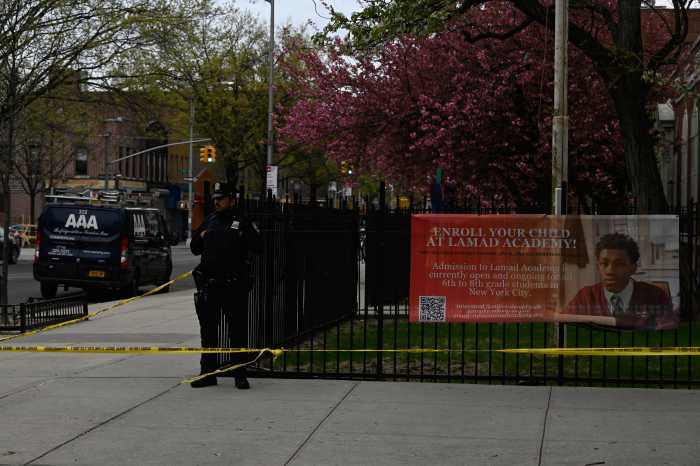Mayor Eric Adams on Tuesday claimed that some City Council members who voted for the “How Many Stops Act” police transparency legislation he recently vetoed would not have supported it if they could have voted “their conscience.”
Hizzoner made the remarks at his weekly “off-topic” press conference as the council is preparing to override his recent rejection of the measure — known as the “How Many Stops Act.” The council passed the two-bill package by 35 votes late last year, more than the 34 needed to overrule Adams’ veto.
The mayor and the council have been publicly clashing over the bill since it passed late last year, holding numerous events to make their case against one another — including a Tuesday council press conference at the same time as the mayor’s media event. Mayor Adams has charged that council members failed to understand the bill they voted for, while council leadership argues the mayor is spreading “misinformation” about the measure.
Adams further charged that some council members privately expressed misgivings about the bills, which would mandate cops to report on lower-level civilian encounters, noting that the communities they represent also do not support them.
“I know when I have communicated with some of the City Council members, some of them have shared ‘my constituency don’t believe this, my constituency believes that this is a harmful bill,’” Adams said. “Some of them have said that if they were able to vote with their conscience, they would not vote for this bill. Some of them have indicated that they’re afraid to vote with their conscience. And I say we should be more fearful of our safety in this city.”
The mayor did not specify which council members he was referring to and his spokesperson Charles Lutvak declined to disclose their names — citing City Hall’s often stated policy of not going into private conversations.
When asked for a response to the mayor’s assertion, City Council spokesperson Mandela Jones said “that’s false.”
Question of ‘objective credible reason’
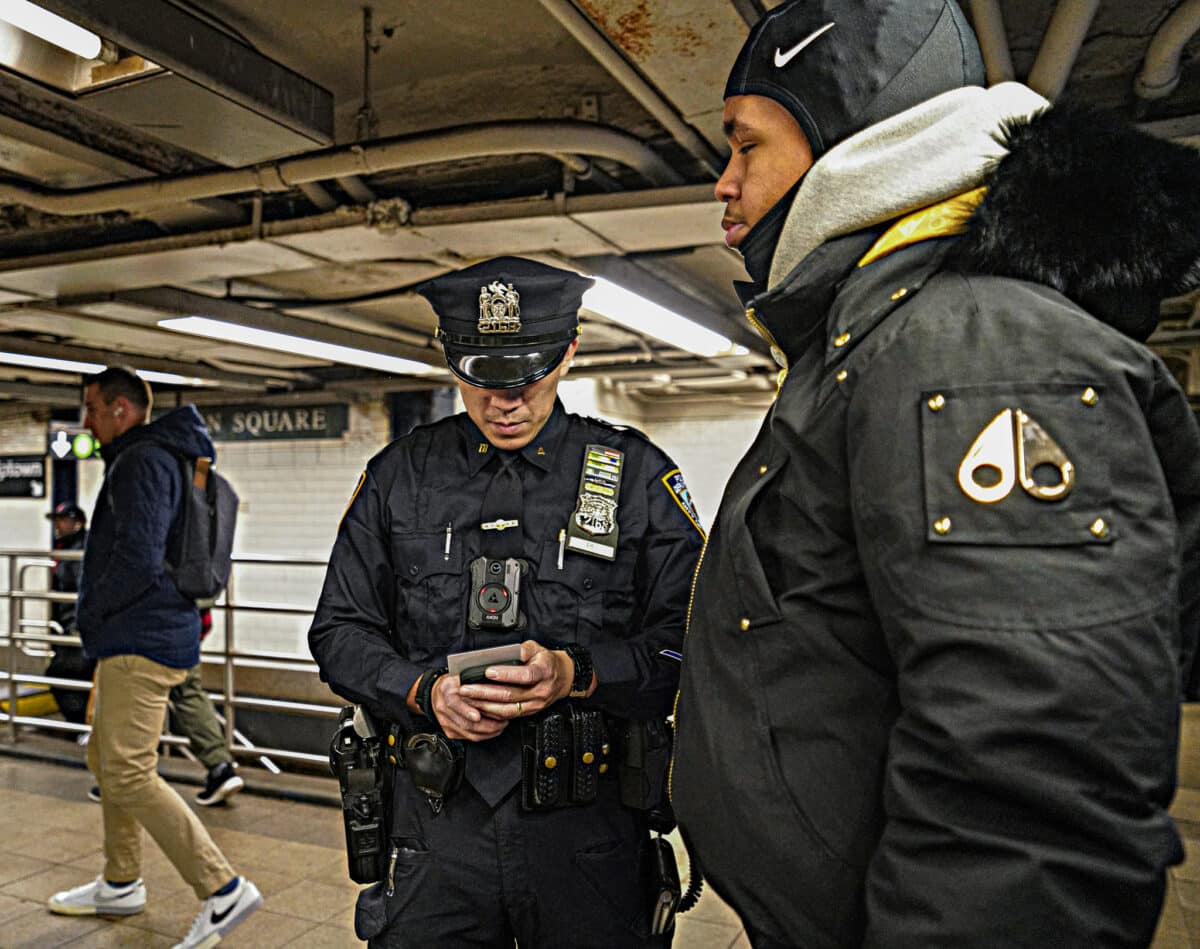
The legislation aims to curtail police misconduct by requiring officers to report on the demographics of civilians they interact with when making lower-level stops, which they do not currently have to do. The mayor argues the bill would endanger public safety by overloading cops with paperwork, thus taking them off the beat, and would greatly increase overtime spending.
The mayor pointed to Council Speaker Adrienne Adams’ southeast Queens district, where he grew up, as an example of one of the communities he says does not support the legislation.
“I know they are pro-law enforcement,” Adams said. “I know communities in Rockaway, South Bronx … Washington Heights, they want their police policing, not doing paperwork.”
The mayor’s main qualm with the legislation is its requirement that cops report on what are known as “Level 1” stops — encounters that involve officers asking civilians for basic information. Currently, cops are only required to document “Level 3” stops — commonly known as “stop, question and frisk” — but information on all stops is recorded on their body cameras.
Level 1 stops are where cops with an “objective credible reason” can stop individuals and ask for information, like their identification or where they are going. The legislation specifies that Level 1 encounters do not include “casual conversations.”
However, the mayor contends the definition of the Level 1 stops is far broader and includes encounters as mundane as officers giving directions to tourists. He also argues it will take time for officers to answer questions for each encounter and that they will have to guess people’s demographic information.
“Their hearts are in the right place,” Adams said. “But the wording of Level 1 stops, we agree with Level 2 and Level 3’s, but the Level 1 stops is the area where they are misunderstanding the rule.”
But Speaker Adams said Tuesday that the council stands ready to override the mayor’s veto in spite of his campaign against the measure.
“The choice is clear: We must work to end the legacy of harm that has subjected too many of our friends, neighbors and family members to discriminatory treatment,” the speaker said. “We stand united in support of this important reform and against the mayor’s veto. And we look forward to overriding it together.”
